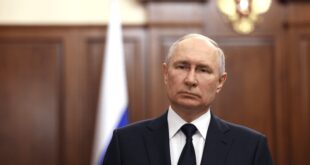During last week’s general debate at the UN General Assembly, Iraqi Prime Minister Mohammed Shia Al-Sudani eagerly outlined his government’s adoption of a meticulously designed program, earmarked with pivotal priorities for swift execution, all aimed at substantially bettering the lives of Iraqi citizens. Among the initiatives are the generation of ample employment prospects, significant poverty reduction, stringent anti-corruption measures and the heralding of robust economic reforms.
The prime minister envisaged a proactive role for Iraq in remedying a spectrum of international and regional challenges, undergirded by an unyielding adherence to international law and a profound respect for all UN resolutions. The dialogue accentuated Iraq’s desire to foster cordial relations with its neighbors while vehemently abstaining from being a catalyst for aggression against any sovereign state.
Al-Sudani elaborated on the grim repercussions of religious extremism — a malevolent force Iraq has contended with. He denounced extremism in all its guises. He implored the camaraderie of friendly nations to assist Iraq in the formidable battle against corruption and the recovery of stolen national wealth. This clarion call was made amid his articulate address at the UNGA.
The Iraqi official outlined his country’s metamorphosis into a conducive domain for investors and its pivotal role in the global oil market. He alluded to the ongoing development of a regional corridor aimed at smoothening trade and transportation channels.
Ironically, in his address, Al-Sudani painted an optimistic picture of Iraq’s present situation, portraying it in a light reminiscent of more stable and prosperous regions such as Switzerland or Dubai. His rhetoric seemingly veiled the challenges tied to proxy Shiite militias led by the Islamic Revolutionary Guard Corps, prevalent criminal activities and political assassinations.
The discourse also appeared to underplay the purported nexus between corruption and the pro-Iran ruling factions, within which he is categorized. Through this lens, a contrast between Al-Sudani’s portrayal and the on-the-ground realities in Iraq emerges, inviting closer scrutiny of the nation’s prevailing political and social dynamics.
While Al-Sudani aimed to portray himself as a hero committed to purging corruption from Iraq in the eyes of the international community, his tenure since assuming office last October invites a more profound examination. In July, a collaborative action by the US Treasury Department and the Federal Reserve Bank of New York led to the banning of 14 Iraqi banks, prohibiting them from executing dollar transactions. This measure, which was part of a broader initiative to curb corruption and halt dollar smuggling to Iran, was triggered by the revelation that these banks had been entangled in money laundering and potentially fraudulent transactions, possibly benefiting sanctioned entities aligned with Iran.
This prohibition represents just one facet of Washington’s expansive initiative to stem fraudulent US dollar transactions on Iraqi soil. The US Treasury and the Central Bank of Iraq have also instituted stricter regulations surrounding wire transfers. Concurrently, the US Federal Reserve has enhanced its scrutiny over the origins of foreign funds earmarked for purchasing dollars at Iraq’s daily currency auction. The practice of utilizing Iraqi banks to channel US funds to Iran should be alarming.
It is widely recognized among Iraqi insiders, the prime minister included, that no financial transaction, specifically in US dollars, is directed toward Tehran without explicit authorization or facilitation from the government in Baghdad. This is often underscored by the protection provided by pro-Iran militias.
It is therefore imperative that Al-Sudani be subjected to an inquiry and held accountable for potential violations of US sanctions against Iran, especially given that the Iraqi government consistently portrays Washington as an allied force in the global war to combat terrorism.
In his address to the UNGA, the Iraqi prime minister accentuated that young individuals, who make up 60 percent of the nation’s populace, are deemed as its “best investment.” He elucidated numerous initiatives to bolster the prospects of students and the youth, particularly in the employment sector. However, a discernible dichotomy exists, as young journalists, activists and content creators encounter threats on a routine basis for voicing criticism of the government and the country’s Shiite leadership. Despite this pervasive climate of intimidation, members of the militias seemingly operate with impunity, evading repercussions for menacing civilians or launching assaults on activists.
Instead of painting a rosy picture of the situation for women in Iraq, Al-Sudani needs to be reminded that their plight remains dire in the absence of a legislative framework that safeguards their rights and shields them from domestic violence. According to the UN, 46 percent of married Iraqi women have fallen prey to domestic violence, with a third enduring physical and sexual assault.
The proposed anti-domestic violence law underwent deliberation in the parliament across four sessions, only to be rebuffed each time by political factions aligned with religious parties. These blocs deemed the draft law objectionable, contending that it transgresses societal and religious norms and purportedly fosters a permissive attitude toward women subjected to domestic violence.
Unfortunately, Iraq’s existing penal code perpetuates a culture of impunity toward male-perpetrated violence against women. It contains provisions permitting husbands to mete out punishment to their wives and parents to discipline their children, further undermining the safety and rights of women and children. Additionally, it allows leniency in sentencing for violent acts, including homicide, under the guise of so-called honorable motives, or when a husband or male family member encounters a wife or female relative engaged in extramarital relations.
According to a recent report published by Human Rights Watch, individuals accused of rape or sexual assault may evade prosecution or have their sentences annulled if they enter into matrimony with the victim. The current laws exacerbate the traumatization and marginalization of the affected women, reinforcing a patriarchal narrative in dire need of comprehensive legal reform to uphold the dignity, rights and protection of women in Iraq.
Hence, Al-Sudani’s progressive portrayal of Iraq looks good on paper only. The prime minister’s international endeavors to cast a favorable light on his government’s inadequacies in safeguarding its citizens seem to be unavailing. The stark realities are apparent to the global community and every resident within the nation. Without establishing and enforcing law and order, the aspirations for a stable and prosperous Iraq will remain unfulfilled.
 Eurasia Press & News
Eurasia Press & News




